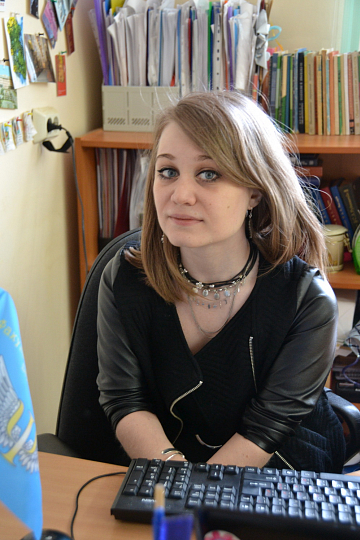AltSU implements projects for children with disabilities
 Scientists from Altai State University under the leadership of Yana Smirnova, an associate professor of the Deparment of General and Applied Psychology of the Institute of Humanities are implementing the project "Development and implementation of rehabilitation technology, correction and training of children with disabilities in children's health and educational institutions and health and recreation sanatorium-type institutions of Altai Krai." It was included in the short list of the Priority 2030 Program.
Scientists from Altai State University under the leadership of Yana Smirnova, an associate professor of the Deparment of General and Applied Psychology of the Institute of Humanities are implementing the project "Development and implementation of rehabilitation technology, correction and training of children with disabilities in children's health and educational institutions and health and recreation sanatorium-type institutions of Altai Krai." It was included in the short list of the Priority 2030 Program.
According to Rosstat, the number of children with disabilities in Russia has increased over the past five years. Today, 2% of the child population has some form of developmental disorder, with psychological and behavioral disorders being the most common, accounting for almost 30% of cases. In Altai Krai, there are more than two thousand children with disabilities of preschool age. The project of AltSU scientists focuses right on them.
“The importance of introducing compensatory diagnostic and correctional programs into preschool institutions that contribute to the socio-cognitive development of the child is due to the number of children with disabilities. They often have a deficit of joint attention and experience difficulties in interacting with other people, in speech, understanding words, processing and using information. These problems can overlap with additional areas of development, but early intervention (under 5 years old) can be very successful and in some cases even eliminate these problems,” said Yana Smirnova, an associate professor of the Department of General and Applied Psychology, project leader.
The project already has a big backlog. Own methods have been developed for the treatment of children with disabilities, correction of their behavior, attention, memory and thinking, and the prevention of possible deterioration. These methods are being implemented at the sites of partner institutions. For example, in the Valeological Center, which since 2015 has been the basic department, where undergraduates work out these technologies, helping specific children and advising parents. Graduate students also work in Barnaul compensatory kindergartens for children with hearing and vision impairments, retardation of speech and mental development. In addition, the project partners are the Regional Psycho-Neurological Children's Sanatorium, the Altai Regional Psycho-Neurological Dispensary for Children, and the Neuro-Psychological Center “RaZum” (“mind” in English).”
“During the implementation of the project, we plan to continue research, reflect the logic of the functioning of joint attention in the process of prevention, correction and education of children with disabilities. A comparative analysis of contrasting groups will allow us to identify examples of compensation for the lack of joint attention. The solution of this problem will make it possible to identify ways, means and methods of compensating for developmental disorders in children with disabilities, to develop "workarounds" for the prevention, correction, training and organization of the educational environment in accordance with the child's capabilities and to develop health-saving technologies for implementation in children's health and educational institutions and health-improving sanatorium-type institutions in Altai Krai,” said Yana Smirnova.
The authors of the project plan to create an electronic database based on the results of scientific research. In addition, the project envisages the implementation of an FVE program for undergraduates and practitioners working with children with disabilities.